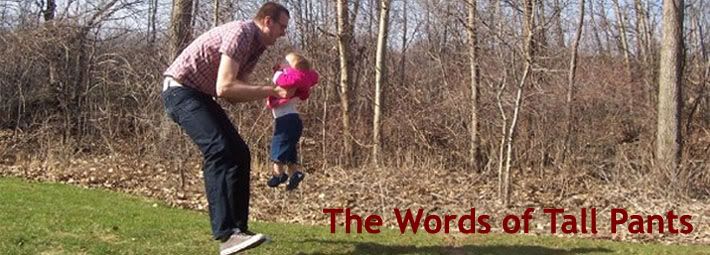"Hospice" by The Antlers | A Pastoral Reflection
 Instantaneous information and access are cardinal virtues of our time, and reflections on albums released eight months ago are decidedly uncool. Reviews come out at or before the release of an album, and a revisit is only appropriate within the confines of "Best of" lists. Or 5, 10, 20, or 25 years later, when it has become a classic.
Instantaneous information and access are cardinal virtues of our time, and reflections on albums released eight months ago are decidedly uncool. Reviews come out at or before the release of an album, and a revisit is only appropriate within the confines of "Best of" lists. Or 5, 10, 20, or 25 years later, when it has become a classic.Well, Hospice, by The Antlers was released last summer to much critical acclaim, but I didn't hear about it until the year end lists started coming out in November and December. I didn't acquire the album until last week, and am grateful to receive its witness. Now this is not a blanket recommendation of the album. It's dark, haunting, brooding, at times nightmarish, and everything else you'd expect from an album entitled Hospice. But as someone who interacts with hospital patients, dying people, and grieving families on a semi-regular basis, I find the albums's stark honesty devastatingly beautiful.
I won't attempt to reconstruct the entire narrative of the album, nor review it, but only to share some ways in which its poetry has spoken truth into me as a pastoral caregiver. The opening lines are telling: "I wish that I had known in that first minute we met, the unpayable debt that I owed you. Because you'd been abused by the bone that refused you, and you hired me to make up for that." As a pastor, I often enter situations completely oblivious to the stories of one or more of the people immersed in a difficult situation. History, upbringing, core convictions, and biases toward tall people influence the coming conversation and subsequent relationship long before I enter a room. Expectations are rarely clear, and after the fact, we pine, with The Antlers, for a little foreknowledge, background, anything that would have prepared us for what's about to transpire.
In Hospice, Sylvia is the patient who grew up with an abusive father, and has become an abusive patient to her caregiver. The caregiver isn't faultless, as a lack of boundaries has allowed this abuse to escalate. He wants to be more than a caregiver. He wants to be her savior. On the song "Atrophy," over sparse but slowly building instrumentation, he confesses: "I'm bound to your bedside, your eulogy singer. I'd happily take all those bullets inside you and put them inside of myself." After these lines, the music builds to a cacophonic roar before pulling back to the singular voice, nearly whispering "Someone, oh anyone, Tell me how to stop this. She's screaming, expiring, and I'm her only witness." Later, in the heartwrenching song "Two," the caregiver mourns that "There's no open doors, and there's no way to get through, there's no other witnesses, just us two."
In my ongoing dialogues with God, this line has entered my mind more than once. "There's no other witnesses, just us two." Yesterday, it struck me why this line refuses to leave me alone. Much like the tragic protagonist of Hospice, I have been guilty of overidentifying and overinvesting. There have been times where I have assumed this responsibility of sole witness to the sufferings of another. Even while confessing with my lips that God is with them in their pain and suffering, I have been guilty of making it about me. Pastoral care should never be something that I need in order to feel useful as a pastor. It should not be the place where I pick at the things I hate in myself that I happen to see in others.
I, more than anyone should be the one to point to and embrace the third witness. And when it feels like "just us two," the time is ripe to embrace the presence of that mysterious Other, the self-giving God who knows the deepest suffering that human life has to offer, both in the pain of a Son who suffered the worst sort of death imaginable, and of the Father, who had to witness the unbearable tragedy. On the other side of suffering with Christ is hope. Tragically, for the isolated and suffocating suffering of Hospice, there is no other side, even after Sylvia's death. From the Epilogue, "When I try to move my arms sometimes, they weigh too much to lift. I think you buried me awake (my one and only parting gift.) But you return to me at night, just when I think I may have fallen asleep. Your face is up against mine, and I'm too terrified to speak."
I'm sure Hospice will continue to provide me with rich reflections appropriate for such a time as this Lenten season, and will serve as an ongoing reminder that caring for the hurting is a sacred task, and should never be attempted alone. The Kingdom of God gives us a hopeful alternative to the nightmares of Hospice. Not a sparing from suffering, but the promise of hope, the joy of resurrection.
Labels: Culture, Hospice, Lent, ministry, Music, pastoral care, The Antlers



1 Comments:
andrew, thanks for you pastoral reflection on this album. i wanted to second your affirmation of this as a particularly beautiful and profound piece of work. it is, indeed, an intense reflection, but well worth an evening or two's worth of reflection.
Post a Comment
Subscribe to Post Comments [Atom]
<< Home